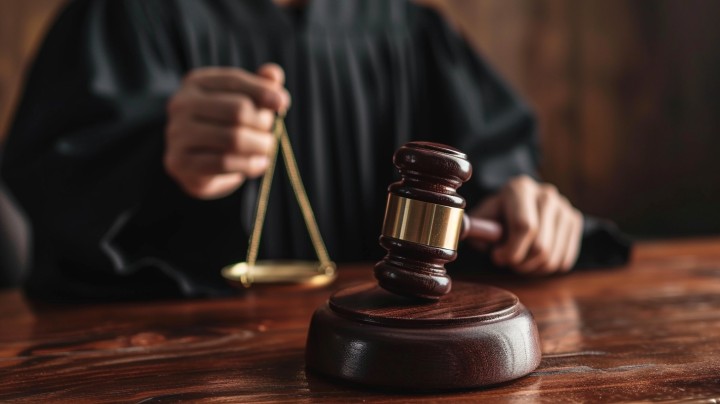Introduction
Staying out of jail requires a combination of legal knowledge, proactive behavior, and strategic actions. This guide provides comprehensive strategies to help you navigate legal challenges and avoid incarceration.
Understanding Legal Rights and Obligations
Know Your Rights: Knowing your rights is crucial when dealing with law enforcement and legal proceedings. Familiarize yourself with your rights under the Constitution, such as the right to remain silent and the right to an attorney.
Legal Obligations: Be aware of your legal obligations, including obeying laws, attending court hearings, and complying with court orders.
Staying Informed: Keep yourself informed about changes in laws and legal procedures that might affect you.
Strategies to Avoid Arrest
Legal Conduct
Adhering to Laws: The most straightforward way to avoid jail is to follow the law. Avoid engaging in illegal activities and understand the consequences of breaking the law.
Understanding Consequences: Recognize that even minor offenses can lead to arrest and potential jail time. Stay informed about the legal implications of your actions.
Legal Compliance: Ensure all your activities comply with local, state, and federal laws.
Avoiding High-Risk Situations
Recognizing Risky Environments: Avoid places and situations where illegal activities are likely to occur, such as drug-infested areas or gatherings where illegal activities are common.
Making Safe Choices: Make decisions that prioritize your safety and legal standing. Avoiding high-risk behavior reduces the chances of arrest.
Awareness: Be aware of your surroundings and the potential legal risks associated with certain environments and behaviors.
Effective Communication with Law Enforcement
Rights During Interactions: Know your rights when interacting with law enforcement. You have the right to remain silent and the right to refuse searches without a warrant.
Staying Calm: Stay calm and polite during interactions with police officers. Avoid confrontation and comply with lawful requests.
Cooperating Appropriately: Cooperate with law enforcement to the extent required by law without waiving your rights.
Legal Representation and Advice
Hiring a Lawyer
Choosing the Right Lawyer: Select a lawyer with experience relevant to your legal issues. Check their credentials and reputation.
Costs: Understand the costs associated with hiring a lawyer. Some lawyers offer payment plans or sliding scale fees.
Benefits of Legal Representation: A lawyer can provide crucial guidance, represent you in court, and help negotiate favorable outcomes.
Legal Aid Services
Accessing Free or Low-Cost Legal Services: If you cannot afford a lawyer, seek help from legal aid organizations that provide free or low-cost legal services.
Public Defenders: If you are facing criminal charges and cannot afford a lawyer, you may be entitled to a public defender.
Legal Clinics: Many law schools and community organizations offer legal clinics that provide free legal advice and representation.
Knowing When to Seek Legal Help
Early Intervention: Seek legal help as soon as you face potential legal issues. Early intervention can prevent escalation.
Legal Advice: Always seek legal advice before making decisions that could have legal consequences.
Understanding Legal Options: A lawyer can help you understand your options and the best course of action to avoid jail.
Negotiating Alternatives to Incarceration
Plea Bargains
Understanding Plea Deals: Plea bargains involve pleading guilty to a lesser charge in exchange for a reduced sentence.
Negotiation Strategies: Work with your lawyer to negotiate favorable plea deals.
Legal Guidance: Your lawyer can advise you on whether a plea bargain is in your best interest.
Diversion Programs
Eligibility: Diversion programs offer alternatives to incarceration for eligible individuals, often involving rehabilitation or community service.
Types of Programs: Programs vary by jurisdiction but may include drug courts, mental health courts, and community service programs.
Benefits: Successfully completing a diversion program can result in reduced charges or dismissed cases.
Probation and Parole
Conditions: Probation and parole allow individuals to serve their sentences outside of jail under specific conditions.
Compliance: Strictly comply with all conditions of probation or parole to avoid violations.
Benefits of Non-Incarceration Sentences: These alternatives allow individuals to maintain employment, family connections, and community ties.
Behavior and Compliance During Legal Proceedings
Court Etiquette
Appropriate Dress: Dress professionally for court appearances to show respect for the court.
Behavior in Court: Be respectful, attentive, and quiet in court. Follow all instructions from court officials.
Respect for Court Officials: Address the judge and court staff with respect and follow courtroom procedures.
Meeting Legal Obligations
Attending Hearings: Attend all court hearings and arrive on time.
Meeting Deadlines: Meet all deadlines for submitting documents and completing required actions.
Following Court Orders: Comply with all court orders and conditions imposed by the judge.
Avoiding Additional Charges
Staying Out of Trouble: Avoid engaging in any activities that could result in additional legal charges.
Avoiding Violations: Adhere strictly to all legal conditions and avoid any behavior that could be considered a violation.
Legal Compliance: Maintain compliance with all legal requirements to prevent further legal issues.
Rehabilitation and Self-Improvement Programs
Substance Abuse Programs
Types: Programs include inpatient rehab, outpatient treatment, and support groups.
Benefits: These programs can help individuals overcome addiction and avoid related legal issues.
Accessing Help: Seek assistance from healthcare providers, community organizations, or legal aid services.
Educational Opportunities
Continuing Education: Pursue educational opportunities to improve your skills and employment prospects.
Vocational Training: Enroll in vocational training programs to gain practical skills.
Benefits of Learning: Education can provide personal growth and better job opportunities, reducing the likelihood of engaging in illegal activities.
Community Service
Volunteering: Engage in community service to give back and demonstrate good citizenship.
Benefits: Community service can be a positive alternative to incarceration and show commitment to rehabilitation.
Legal Advantages: Completing community service can be part of a diversion program or probation requirement.
Building a Support Network
Family and Friends
Emotional Support: Rely on family and friends for emotional support during legal challenges.
Financial Help: They may also provide financial assistance if needed.
Guidance: Family and friends can offer valuable advice and support.
Community Resources
Social Services: Access social services for assistance with housing, employment, and other needs.
Legal Aid: Utilize legal aid services for free or low-cost legal assistance.
Local Organizations: Many community organizations offer support and resources for those facing legal issues.
Support Groups
Finding Groups: Join support groups for individuals facing similar challenges.
Benefits of Peer Support: Peer support can provide encouragement, advice, and shared experiences.
Participation: Actively participate in support groups to gain the most benefit.
Conclusion
Avoiding jail requires a proactive approach that includes understanding your legal rights, seeking appropriate legal representation, and complying with legal obligations. By making informed decisions, engaging in self-improvement programs, and building a strong support network, you can navigate legal challenges effectively and minimize the risk of incarceration.
FAQs
Can I avoid jail by hiring a lawyer?
Hiring a lawyer can significantly increase your chances of avoiding jail by providing expert legal representation and negotiating favorable outcomes.
What are diversion programs?
Diversion programs offer alternatives to incarceration, such as rehabilitation or community service, for eligible individuals.
How can I prepare for a court hearing?
Dress professionally, be respectful, arrive on time, and comply with all court instructions.
What if I can’t afford a lawyer?
Seek help from legal aid organizations, public defenders, or legal clinics that provide free or low-cost legal services.
How can I avoid additional charges during legal proceedings?
Avoid engaging in illegal activities, comply with all court orders, and adhere to the conditions of probation or parole.
What support resources are available in the community?
Access social services, legal aid, and community organizations for assistance with legal, financial, and personal challenges.






